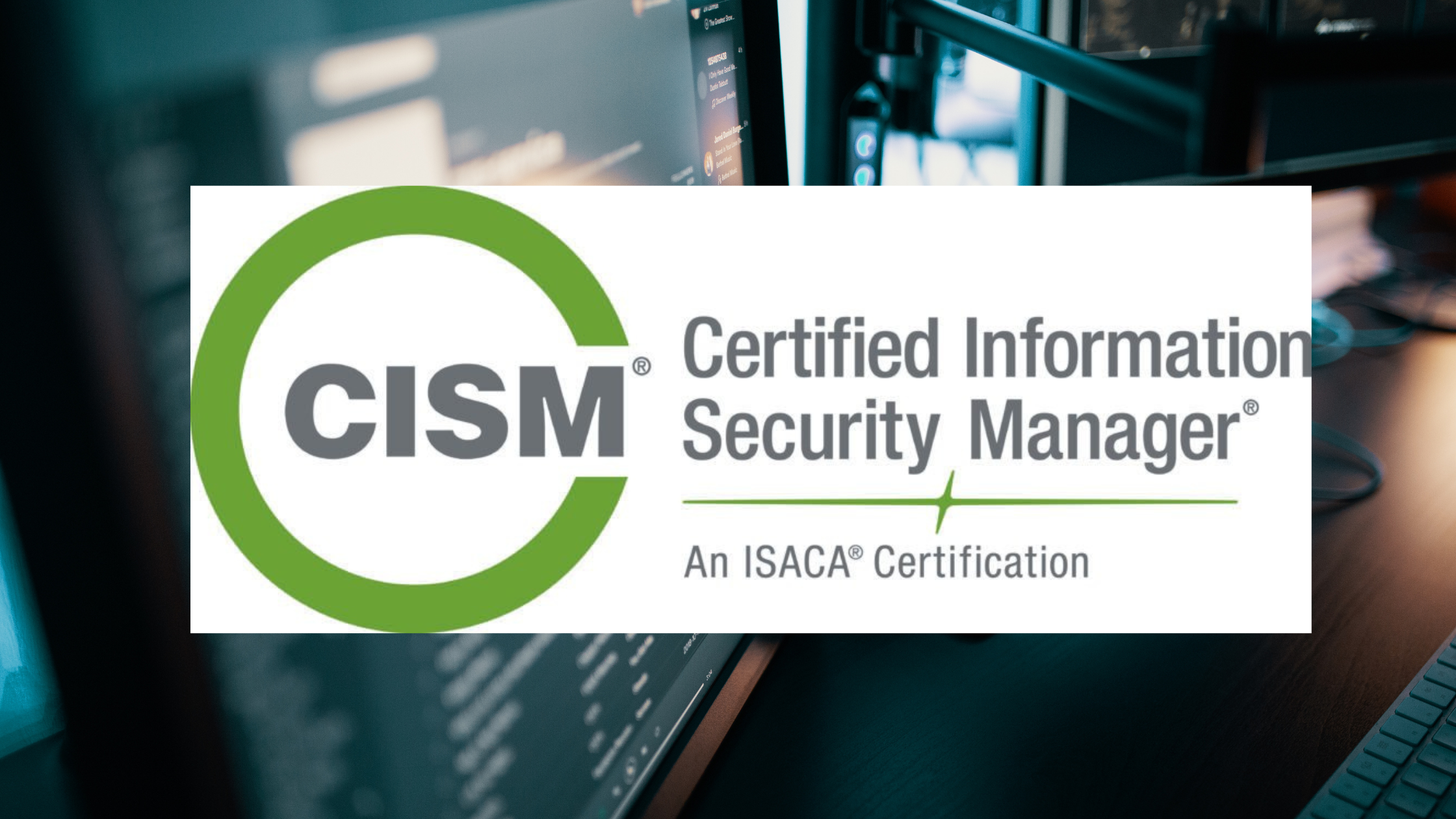The Ultimate Guide to Achieving Your CISM Certification
In today’s digital age, cybersecurity has become a critical concern for organizations worldwide. With the increasing frequency of cyberattacks, businesses are prioritizing the protection of their sensitive data and systems. This has led to a surge in demand for skilled professionals who can manage and mitigate cybersecurity risks effectively. If you’re looking to advance your career in this field, earning the CISM Certification (Certified Information Security Manager) is a game-changer. In this blog, we’ll explore everything you need to know about the CISM Certification, including its benefits, eligibility requirements, exam details, and tips to help you succeed.
What is CISM Certification?
The CISM Certification is a globally recognized credential offered by ISACA (Information Systems Audit and Control Association). It is designed for professionals who manage, design, and oversee an enterprise’s information security program. Unlike other certifications that focus on technical skills, CISM emphasizes governance, risk management, and strategic planning, making it ideal for mid-to-senior-level professionals.
Why Pursue CISM Certification?
- Boost Your Career Prospects
The CISM Certification is highly regarded by employers across industries. It demonstrates your expertise in information security management, making you a valuable asset to any organization. According to recent surveys, CISM-certified professionals earn significantly higher salaries compared to their non-certified peers. - Global Recognition
CISM is recognized worldwide, opening doors to opportunities in international markets. Whether you’re aiming for a leadership role in your current organization or exploring global job markets, this certification can give you a competitive edge. - Enhance Your Skills
The CISM curriculum covers four key domains:- Information Security Governance
- Information Risk Management
- Information Security Program Development and Management
- Information Security Incident Management
By mastering these areas, you’ll gain the knowledge and skills needed to address complex cybersecurity challenges effectively.
- Information Security Governance
- Increase Organizational Value
As a CISM-certified professional, you’ll be equipped to align information security with business goals, ensuring that your organization’s data and systems are protected while supporting growth and innovation.
CISM Certification Eligibility Requirements
To qualify for the CISM Certification, you must meet the following criteria:
- Work Experience: A minimum of five years of experience in information security management, with at least three years in three or more of the CISM domains.
- Exam: Pass the CISM exam, which consists of 150 multiple-choice questions to be completed in four hours.
- Adherence to Code of Ethics: Agree to abide by ISACA’s Code of Professional Ethics.
- Continuing Education: Maintain your certification by earning at least 120 CPE (Continuing Professional Education) credits over a three-year period.
CISM Exam: What to Expect
The CISM exam is designed to test your knowledge and understanding of information security management principles and practices. Here’s a breakdown of the exam structure:
- Format: 150 multiple-choice questions
- Duration: 4 hours
- Scoring: A scaled score of 450 or higher is required to pass (on a scale of 200-800).
The exam focuses on the four domains mentioned earlier, with the following weightage:
- Information Security Governance (17%)
- Information Risk Management (20%)
- Information Security Program Development and Management (33%)
- Information Security Incident Management (30%)
Tips to Prepare for the CISM Exam
- Understand the Exam Domains
Familiarize yourself with the four domains and their subtopics. Use the official ISACA CISM Review Manual as your primary study resource. - Enroll in a Training Course
Consider joining a CISM training program to gain in-depth knowledge and insights from experienced instructors. Online courses and boot camps are also great options for flexible learning. - Practice with Sample Questions
Take advantage of practice exams and sample questions to assess your readiness and identify areas for improvement. - Create a Study Plan
Dedicate sufficient time to each domain based on its weightage. Set a realistic study schedule and stick to it. - Join Study Groups
Connect with other CISM aspirants through forums or study groups to share knowledge, discuss challenging topics, and stay motivated.
Career Opportunities with CISM Certification
Earning your CISM Certification can open doors to a wide range of career opportunities, including:
- Information Security Manager
- IT Risk Manager
- Chief Information Security Officer (CISO)
- Security Consultant
- Compliance Officer
These roles often come with attractive salaries and opportunities for career growth. According to recent data, the average salary for CISM-certified professionals in the United States exceeds $120,000 per year.
Conclusion
The CISM Certification is more than just a credential—it’s a testament to your expertise and commitment to information security management. By earning this certification, you’ll not only enhance your career prospects but also contribute to the overall security and success of your organization. Whether you’re an experienced professional looking to take the next step in your career or a newcomer aiming to establish yourself in the field of cybersecurity, the CISM Certification is a worthwhile investment. Start your journey today and unlock your full potential in the world of information security management.

